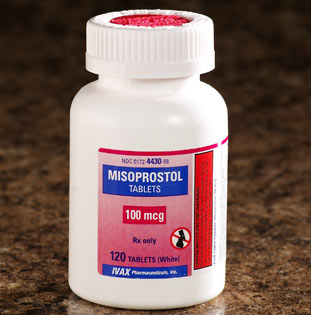It’s not like there are good alternatives right now in Texas.
The demand for abortion-inducing medication spiked in the month after Texas significantly limited abortion access and has remained high since, according to new data from a researcher at the University of Texas at Austin.
The study reviewed requests for abortion-inducing medication made to Aid Access, an international nonprofit that provides the medication via the internet to people who cannot otherwise legally access the procedure. Prior to September 2021, the organization typically received an average of 10.8 requests a day from Texans.
Then, the Texas Legislature passed Senate Bill 8, which prohibits abortions after about six weeks of pregnancy, a point at which many people do not know they are pregnant. In the first week after the law went into effect on Sept. 1, Aid Access received an average of 137.7 daily requests from Texas, an increase of over 1000%.
“That big of a spike in requests shows us the uncertainty and chaos created by Senate Bill 8 going into effect,” said Abigail Aiken, the lead researcher on the study. “If it’s not certain that you can go to a clinic and get the care that you need, people will be looking around for what other options they have.”
The demand for the medication has remained higher than normal in the months since, Aiken found.
Medical abortion is typically a two-drug regimen of mifepristone and misoprostol that has been shown to be effective at terminating a pregnancy through the first 10 weeks of pregnancy. In December, the federal government lifted a requirement that the medication be dispensed in person, allowing it to be prescribed by telemedicine and sent through the mail.
But Texas law does not allow the medication to be prescribed through telemedicine or mailed and has limited its use to the first seven weeks of pregnancy.
[…]
Aiken, the researcher behind the study, said it’s impossible to know how and when patients use the medication they access through Aid Access — or how many patients are terminating pregnancies through other means.
But as the U.S. Supreme Court considers whether to overturn the constitutional protection for abortion, Aiken said this Texas data serves as a snapshot of what whole swaths of the country may be facing.
“It’s clear from this research and many studies that just because you make abortion harder to get, it doesn’t mean the need for abortion goes away,” she said. “And many people, they will look for other ways of doing that.”
See here and here for some background. The forced-birth contingent is of course not happy with this and murmuring about ways to pursue “legal action” against international and out of state groups like Aid Access. Not sure how they could do that without being extremely invasive, but I have no doubt that such a thought does not bother them at all. On the assumption that SCOTUS is going to gut Roe v Wade in some significant way, the main question is whether people will mostly still be able to get abortion pills freely, or whether they will have to rely on more evasive options. Both seem very much in play. The Chron has more.


Pingback: And more people are travelling for abortions – Off the Kuff